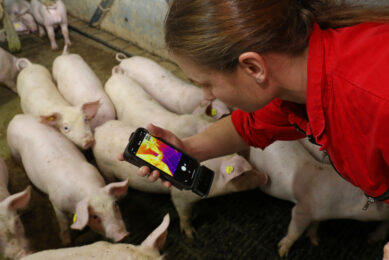A different subject: Talking about smaller litters
Attending a conference on the end of piglet castration in the European Union, held in Amsterdam, the Netherlands, I notice that both the topic as well as the visitors are unique.
The topic is unique as the theme of castration always used to be discussed, but hardly ever before a whole public conference was organised, attracting 150 international experts. The only other one I came across was held mid-last year, on Raising Boars, in the Netherlands as well.
That was only months after the Declaration of Brussels had been presented.
As we all know – that is when many relevant stakeholders in the 27 member states of the EU decided to move away from castration by 2018 at the latest. In the meantime, alternatives have to be searched.
Conference
All stakeholders are present in Amsterdam, that also means representatives from animal welfare organisations, I counted at least eight of them among 150 representatives.
Two of them sat at my dining table. And so it happened I had dinner for a change talking about how to get smaller litters of piglets instead of bigger; why there should be a bigger emphasis on local production; how to feed the world in 2050 – and yes, why meat consumption should have to become something very exclusive, something for only a couple of days a week, perhaps two.
“But of course, you can’t write this down as an agricultural journalist – you are in that business,” they said.
I replied that I can write it. After all, if we will make it possible for the whole of China, India, Brazil, Russia, Kazakhstan, Iran, Pakistan and the whole of Africa as well to eat a little bit of sustainable meat in the way it is done in the West, one of the things we may want to do is slightly rethink our consumption patterns.
Anyway, just before you think I have been brainwashed – I had reached that conclusion long before I came to Amsterdam.
I liked the discussion; it was nice to hear and be heard. After sometimes being villified by animal welfare activists, it is good to exchange ideas with more pragmatic and open-minded organisations who from an idealistic point of view take the pig and meat industry seriously and would like to cooperate in creating a better future.
All stakeholders together, from breeders to processors and from quality assurance associations to welfare organisations, all had their meal together. This is a hopeful start for a good conference on Thursday!











